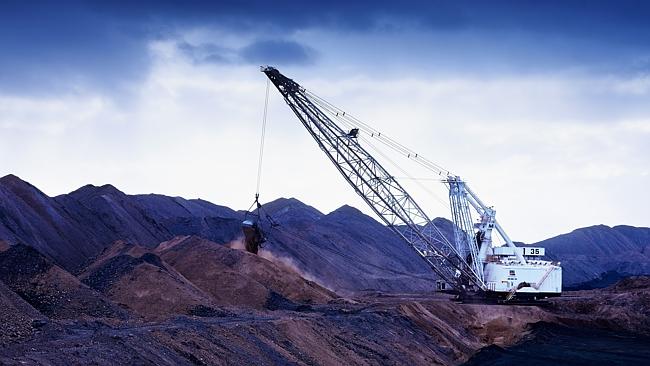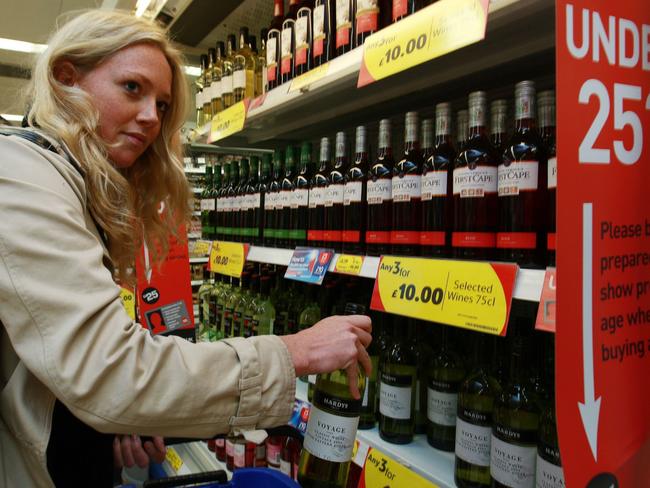Should we welcome the end of the mining boom?
FOR over a decade, we’ve been led to believe that the mining boom was the reason we’ve been so lucky. That may not be the case at all.

AUSTRALIANS could be forgiven for being worried about life after the mining boom but there’s one set of figures we can take comfort in.
While there’s no doubt the rise in commodity prices has been a dominant economic driver in Australia for years, policy analyst Miriam Lyons says people should remember that Australia was growing quite well without it.
Lyons points to a Lowy Institute paper that found that in the 10 years prior to 2002, Australia’s GDP, national income and productivity all grew faster in the decade before the mining boom than in the decade after it began.
The author of the paper, John Edwards, a former adviser to Paul Keating and now a Reserve Bank board member, also found that incomes and employment rose as much before as after the boom.
Lyons, who was founding executive director of the Centre for Policy Development, will speak at the Festival of Dangerous Ideas next month about whether Australia should welcome the end of the boom.
“I’m definitely not suggesting that Australia hasn’t benefited economically from the boom in mining investment, or that managing the end of the investment boom will be easy,” Lyons told news.com.au.
However, she said there were important lessons that Australia should take away from its experiences.
She said that during the boom many other industries, such as tourism, education, agriculture and manufacturing were damaged because of the massive rise in the Australian dollar.
This includes the Australian wine industry, which was once making huge gains overseas, but now seems to have been pushed out by cheaper products from Chile and Argentina.
Now that commodity prices have dropped, these industries could come back, although they have not bounced back as quickly as some had hoped they would.
“We need better policies for the next boom ... that will not hollow out the economy to such a great extent and have such a cost in terms of volatility,” Lyons said.
She said that during the boom Australia’s exports became dominated by resources, which was problematic because of how volatile these products are.
Finance and mining stocks grew to make up more than half the value of the Australian Stock Exchange.
“Mining stocks tend to be volatile and people’s super funds [which are linked to the stockmarket] could have volatile returns, especially if they have entered the drawdown phase,” Lyons said.
While coal looks like it might be in permanent decline, Lyons said demand for things like iron ore would likely recover, and some also believe there will be increasing demand for liquid natural gas.
This is one of the reasons Lyons believes Australia should place a higher price on its commodities in the future.
“(Resources) are not going to move,” Lyons said.
She said that resources were limited and, while a potential buyer could decide to get them cheaper elsewhere in the short term, as supply dried up they might eventually have to buy them from Australia in the longer term. This would also have created a slower boom, which Lyons believes would have been better for the country.

“Over the long term, we would have benefited more from a slower boom, with higher mining taxes and a sovereign wealth fund helping to insulate the rest of Australia’s economy from the impact of mining investment on the dollar,” Lyons said.
“This is a lesson we should learn from and act on now, so we’re better prepared when the price of iron ore etc rises once again.”
Lyons believes Australia could have followed the example of a country like Norway, which taxes its petroleum industry heavily. It charges a 51 per cent resource tax on oil company profits as well as ordinary income tax of 27 per cent. This brings the total tax liability for oil companies to 78 per cent.
Most of the money raised goes into a sovereign wealth fund, which is valued at over $900 billion, and is the world’s biggest.
Lyons said that in Norway no one was confused about who the oil belonged to, and that this natural wealth should benefit its citizens.
As the mining boom ends, Australia needs to look to the future and Lyons said the International Monetary Fund recommended more investment in infrastructure as one way of transitioning the economy away from resources.
The question that Lyons has challenged Australians to consider was whether the country should fight the inevitable.
“We need to imagine Australia’s place in a coal-free future,” Lyons said.
“The price (of coal) is not going to artificially inflate, we have to adjust,” she said.
Lyons said she was concerned that Prime Minister Tony Abbott was saying coal was good for humanity and could make Australia a “Kodak country”, potentially killing off the future, in the interests of preserving the past.
“We should be worried that PM Tony Abbott is still describing coal as ‘the foundation of prosperity’ this is the equivalent of talking up the future of the horse and cart industry just as the first Fords roll off the lines.”



